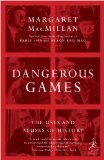Summary | Excerpt | Reviews | Beyond the Book | Readalikes | Genres & Themes | Author Bio

Critics' Opinion:
Readers' Opinion:
First Published:
Jul 2009, 208 pages
Paperback:
Jul 2010, 208 pages
 Book Reviewed by:
Book Reviewed by:
Derek Brown
Buy This Book
The current fascination for people’s personal histories can be narcissistic - how much time should human beings spend gazing at themselves, after all? - but it also comes from the desire to know more about what made people who they are and what made the world in which they happen to live. If people can stand back and see their own histories in a wider perspective, then they can see how they are the products not just of particular individuals but of whole societies and cultures. Members of certain ethnic groups may find that they have inherited views on other ethnic groups, and may also find that others regard them in particular ways. History has shaped humans’ values, their fears, their aspirations, their loves, and their hatreds. When we start to realize that, we begin to understand something of the power of the past.
Even when people think they are striking out in new directions, their models often come from the past. How often have we seen revolutionaries, committed to building new worlds, slip back unconsciously into the habits and ways of those they have replaced? Napoleon came to power as the result of the French Revolution, but the court he set up was modeled on that of the displaced Bourbons. The top Soviet Communists lived within the walls of the Kremlin, as the czars had once done. Stalin looked back to Ivan the Terrible and Peter the Great as his predecessors, as, I suspect, Vladimir Putin did when he was president. The Chinese Communists scorned China’s traditional society, but their top leaders chose to live right at the heart of Beijing, where the imperial court had once been. Mao Zedong himself withdrew into mysterious seclusion, much as the emperors had done over the centuries.
“Men make their own history,” said Karl Marx, “but they do not make it as they please: they do not make it under self-selected circumstances, but under circumstances existing already, given and transmitted from the past.”
During the Cold War, though, history appeared to have lost much of its old power. The world that came into being after 1945 was divided up between two great alliance systems and two competing ideologies, both of which claimed to represent the future of humanity. American liberal capitalism and Soviet-style Communism were about, so they said, building new societies, perhaps even new human beings. The old conflicts, between Serbs and Croats, Germans and French, or Christians and Muslims, were just that and were consigned, in Leon Trotsky’s memorable phrase, to the dustbin of history. The threat of massive nuclear war, of course, was always present, and from time to time, during the Cuban missile crisis in 1962, it looked as if the last moment of the planet had come. But it did not, and in the end most of us simply forgot about the danger. Nuclear weapons took on a benign aspect: after all, the balance of terror meant that neither superpower dared attack the other without risking its own destruction. People at the time assumed that the United States and the Soviet Union would remain locked in their conflict, between war and peace, perhaps forever. In the meantime, the developed world enjoyed unparalleled prosperity, and new economic powers, many in Asia, appeared on the scene.
My students used to tell me how lucky I was to be teaching history. Once you have got a period or the events of a war straight, so they assumed, you don’t have to think about them again. It must be so nice, they would say, not to redo your lecture notes. The past, after all, is the past. It cannot be changed. History, they seemed to say, is no more demanding than digging a stone out of the ground. It can be fun to do but not really necessary. What does it matter what happened then? This is now.
When the Cold War abruptly ended in 1989 with the collapse of the Soviet Empire in Europe, the world enjoyed a brief, much too brief, period of optimism. Collectively, it failed to recognize that the certainties of the post-1945 years had been replaced by a more complicated international order. Instead, most people assumed that as the remaining superpower, the United States would surely become a benevolent hegemony. Societies would benefit from a “peace dividend” because there would be no more need to spend huge amounts on the military. Liberal democracy had triumphed and Marxism itself had gone into the dustbin. History, as Francis Fukuyama put it, had come to an end, and a contented, prosperous, and peaceful world was moving into the next millennium.
Excerpted from Dangerous Games by Margaret MacMillan Copyright © 2009 by Margaret MacMillan. Excerpted by permission of Modern Library, a division of Random House, Inc. All rights reserved. No part of this excerpt may be reproduced or reprinted without permission in writing from the publisher.





The House on Biscayne Bay
by Chanel Cleeton
As death stalks a gothic mansion in Miami, the lives of two women intertwine as the past and present collide.

The Flower Sisters
by Michelle Collins Anderson
From the new Fannie Flagg of the Ozarks, a richly-woven story of family, forgiveness, and reinvention.

The Funeral Cryer by Wenyan Lu
Debut novelist Wenyan Lu brings us this witty yet profound story about one woman's midlife reawakening in contemporary rural China.
Your guide toexceptional books
BookBrowse seeks out and recommends the best in contemporary fiction and nonfiction—books that not only engage and entertain but also deepen our understanding of ourselves and the world around us.